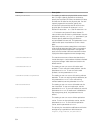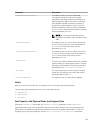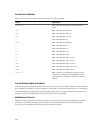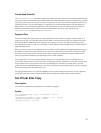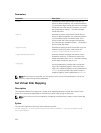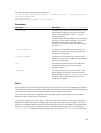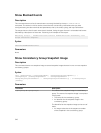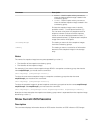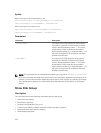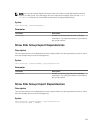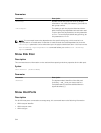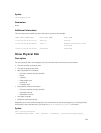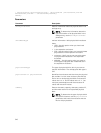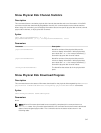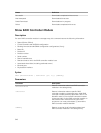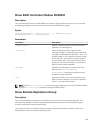
Syntax
When running from the command line, use:
show iscsiInitiator [\“initiatorName\”] iscsiSessions
show iscsiTarget [\“targetName\”] iscsiSessions
When running from a script file, use:
show iscsiInitiator [“initiatorName”] iscsiSessions
show iscsiTarget [“targetName”] iscsiSessions
Parameters
Parameter Description
initiatorName
The name of the iSCSI initiator for which session
information is desired. Enclose the iSCSI initiator
name in double quotation marks (“ ”). The name
and quotation marks must also be enclosed in
either square brackets ([ ]) or angle brackets (< >). If
the name is longer than 30 characters, the angle
brackets must be used.
targetName
The name of the iSCSI target for which session
information is desired. Enclose the iSCSI target
name in double quotation marks (“ ”). The name
and quotation marks must also be enclosed in
either square brackets ([ ]) or angle brackets (< >). If
the name is longer than 30 characters, the angle
brackets must be used.
NOTE: This command can be entered without defining any arguments, i.e. show iscsiSessions.
When the command is entered without arguments, the information displayed is for all active iSCSI
sessions. To limit the information displayed, enter a specific iSCSI initiator or a specific iSCSI target.
The command then displays only information about that particular iSCSI initiator or iSCSI target
session.
Show Disk Group
Description
This command returns the following information about a disk group:
• Status (online or offline)
• Physical disk type (SAS)
• Enclosure loss protection (yes or no)
• Current owner (RAID controller module 0 or RAID controller module 1)
• Associated virtual disks and free capacity
• Associated physical disks
342



